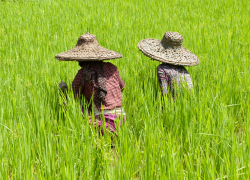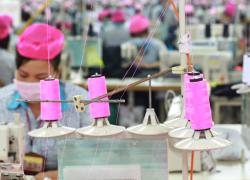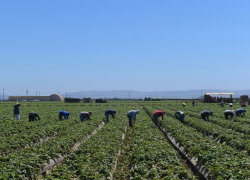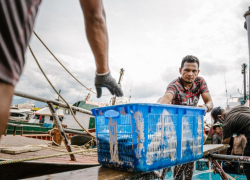The Bureau for International Labor Affairs funds programs around the world to combat child labor and forced labor. Our team has the privilege of supporting the efforts of many inspiring women. They are workers, labor inspectors, educators, entrepreneurs, business leaders, advocates and union leaders. Despite their diverse backgrounds, they all share one goal: ending labor exploitation and empowering workers.
This International Women’s Day, I am honored to share a few of their stories.
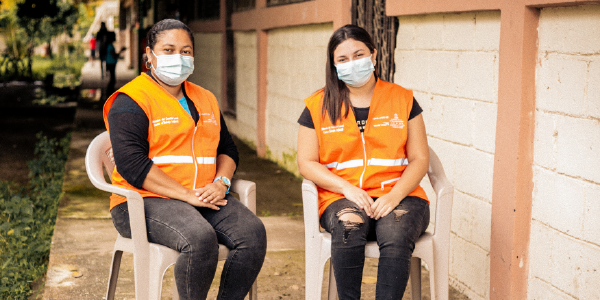
A mother-daughter duo for education
Jessica and Karla are a powerful pair. In their community of Los Caraos in Choloma, Honduras, they advocate for children’s education against a backdrop of high poverty and child labor.
Jessica heads the local Child Labor Prevention Committee, which was established with support from our Futuros Brillantes project with World Vision. Jessica, her daughter Karla, and other committee members have helped children and youth continue their schooling, despite the pandemic and two devastating storms.
When classes went virtual, they served as a link between teachers and students. They regularly spoke to parents about the importance of education, accompanied parents to register children for school, and are now providing masks and other supplies for a safe return to class.
Jessica and Karla have witnessed change in their community. “We have seen many children at risk of dropping out finish their elementary education thanks to the project’s support. I know teens who have finished their studies and now have jobs thanks to that,” Jessica says.
Karla adds, “In the community, people now recognize we are part of the CLC and that we are here to help.”
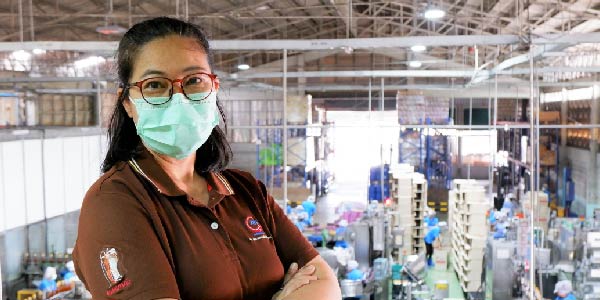
A leader for responsible recruitment
Thailand’s seafood-processing industry, one of the world’s largest, requires a massive workforce. Migrant workers from neighboring countries make up much of this workforce. Many of these workers are at risk of labor exploitation, including forced labor.
Janna, the human resources supervisor of a seafood-processing company in Thailand, realizes the important role employers play in mitigating those risks for workers. In partnership with our FAIR Fish project with Plan International, Janna and her company developed a pilot project for a responsible recruitment model for small and medium enterprises in the industry. The model offers a road map for small and medium enterprises to improve the safety and protection of their migrant workers, from recruitment to employment. Janna is looking forward to sharing the results of their initiative with other seafood processors.
“We must assure all migrants workers, especially women, of dignity, security, protection and recognition throughout recruitment and employment,” she says.
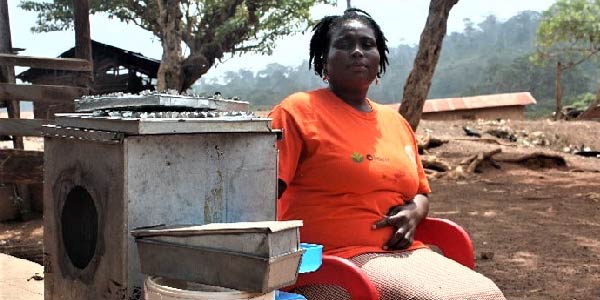
A model for women entrepreneurs
Gifty could not finish school and fulfil her dream of becoming a nurse. She was raised by her grandmother, who could not afford school for Gifty and the other children in her care. Gifty suffered from depression and survived an attempt to take her own life. When she recovered, she enrolled in tailor apprenticeship training, but dropped out when she became pregnant.
Gifty’s story is not uncommon in Ghana. The average girl in Ghana only receives four years of education and is vulnerable to child labor, especially in Ghana’s cocoa supply chain where girls make up more than half of the child laborers. These challenges, along with early pregnancy and violence, hinder opportunities for girls between 10 and 19 years old, and this trend has worsened as a result of the COVID-19 pandemic.
Yet Gifty’s story is also an inspiring example of what happens when societies invest in women and girls and create opportunities that allow them to participate in the economy, increase their productivity, own a business and manage their income. When our Adwuma Pa project with CARE came to the cocoa-producing community in Ghana where Gifty lives and works, she joined a microenterprise training in bread and pastry making. She bought start-up materials and began to bake and sell meat pies, rock buns and chips. Her business succeeded and inspired three other women entrepreneurs to begin to sell hibiscus drinks, which pair nicely with Gifty’s pastries. Thanks to her earnings, Gifty is able to send four of her children, who are vulnerable to child labor in the cocoa supply chain, to private school. She uses her weekly savings to purchase shares at the Village Savings and Loans Association, facilitated by the Adwuma Pa project.
“For me,” she says, “equality means no discrimination, and the Adwuma Pa project is promoting that through empowering vulnerable women and girls.”
Every day, women all over the world are making history, working to end labor abuses and create opportunities for empowerment and advancement. On this International Women’s Day, we take a moment to celebrate the courage and determination of these incredible women. We look forward to continuing e the fight to end child and forced labor in partnership with them.
Thea Mei Lee is the deputy undersecretary for international affairs. Follow ILAB on Twitter at @ILAB_DOL.

 U.S. Department of Labor Blog
U.S. Department of Labor Blog
